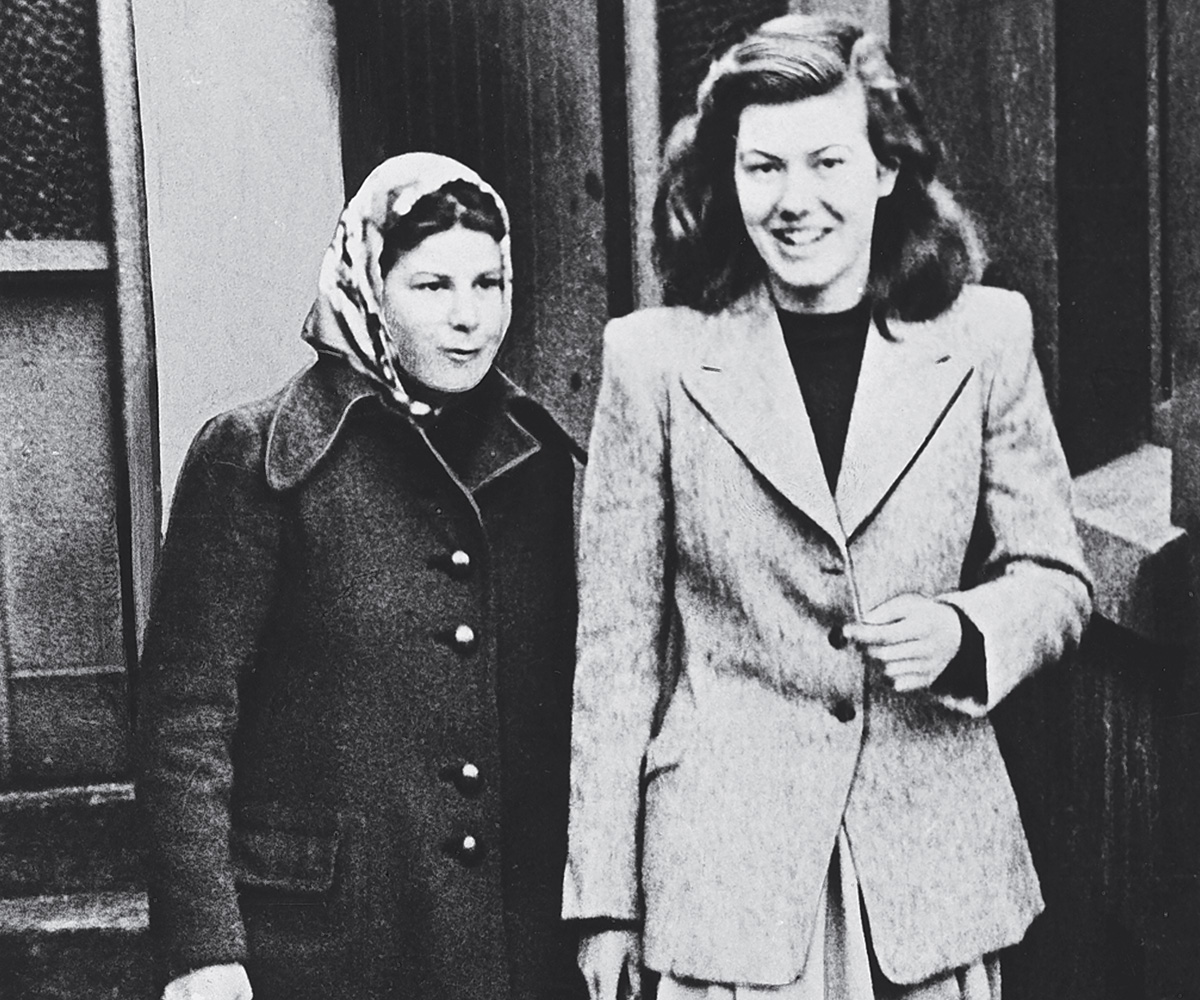When bestselling author Anne Perry died on April 10, her one unfulfilled wish died with her – the hope she could be judged on what she had become as an adult and not for the murder she committed as a teenager. The past, however, casts a long shadow and Anne simply couldn’t escape it.
In 1954, Anne, then known as Juliet Hulme, shocked New Zealand when she and her best friend Pauline Parker bludgeoned Pauline’s mother, Honorah Rieper, to death in a Christchurch park.
Juliet was 15, Pauline was 16.
At the time, they believed Honorah was standing in their way of true happiness and the only way around it was to kill her.
After being found guilty of their grisly crime, the girls never saw each other again. They spent five years in prison – at opposite ends of the country – and when they were released, they changed their names and were never heard of again.

Pauline (left) and Juliet leaving Christchurch court together while on trial.
Until, that is, 35 years later when filmmaker Sir Peter Jackson turned their story into the acclaimed movie Heavenly Creatures, starring Kate Winslet.
Just before the film’s 1994 release, a journalist followed a paper trail that eventually revealed Juliet’s new identity as Anne Perry, a successful crime novelist who lived as a recluse in the secluded Scottish fishing village of Portmahomack.
Her cover was blown and, just like that day in June 1954, when she helped murder Honorah, Anne’s life would never be the same.
“It seemed so unfair,” Anne later said of the day her agent called telling her the film was about to be released and that a reporter had uncovered who she was.
“Everything I had worked to achieve as a decent member of society was threatened. And once again, my life was being interpreted by someone else.

The movie kickstarted Melanie Lynskey (left) and Kate Winslet’s careers.
“It had happened in court when, as a minor, I wasn’t allowed to speak and I heard all these lies being told. And now there was a film, but nobody had bothered to talk to me. I knew nothing about it until the day before release. All I could think of was that my life would fall apart.”
In the years since the murder, Anne had made peace with her past. She recalled later that, as the only minor at Auckland’s Mt Eden women’s prison, she was at first kept in solitary confinement.
“It was cold,” she recalled. “There were rats, canvas sheets and calico underwear. I had to wash out my sanitary towels by hand and they put me on physical labour until I passed out.”
It was there, she says, “that I went down on my knees and repented. That is how I survived my time while others cracked up. I seemed to be the only one saying, ‘I am guilty and I am where I should be.'”
After her release in 1959, she travelled back to her native Britain, became a Mormon and worked hard on her writing career. At her time of death, she’d written more than 100 novels, many of them grappling with questions of sin, repentance, redemption and forgiveness.

Anne’s life as Juliet was about to come to a grisly end.
When her real identity was unmasked in 1994, Anne shared with a senior church member her fears she would be kicked out of the congregation.
“He said, ‘Your calling comes from God and He knows.’ He also told me I would not lose a single friend over it. It didn’t seem possible, but I have learned how decent and compassionate people can be. Not a single friend has gone. That surprised the hell out of me.”
Juliet and Pauline had had an intense friendship as teenagers. They’d even invented their own fantasy world and felt threatened when Pauline’s mother tried to put an end to their association, believing it was unhealthy. Their feelings of persecution escalated when the Hulmes announced they were divorcing and Juliet was going to be sent to live with an aunt in South Africa.
The pair knew Honorah would not allow Pauline to go to South Africa too, and three days later, the friends took the 45-year-old for a walk in Christchurch’s Victoria Park and attacked her in a secluded, wooded area.
Despite claiming Honorah had slipped and hit her head, it took police no time at all to find the half-brick, still enshrouded in a bloodied stocking, that had been used to do the deed.
Three years after Juliet’s new identity had been revealed, it unfolded Pauline had also made a new life in Britain under the name Hilary Nathan. She’d become a devout Roman Catholic and after working for a time as a librarian, she ran a riding school for children in Kent and is believed, since then, to have moved to the remote Orkney Islands in Scotland.
Anne, who was 84 when she died this month in Los Angeles, never made contact with Hilary. She will forever be known as the murderer who became a murder writer.


